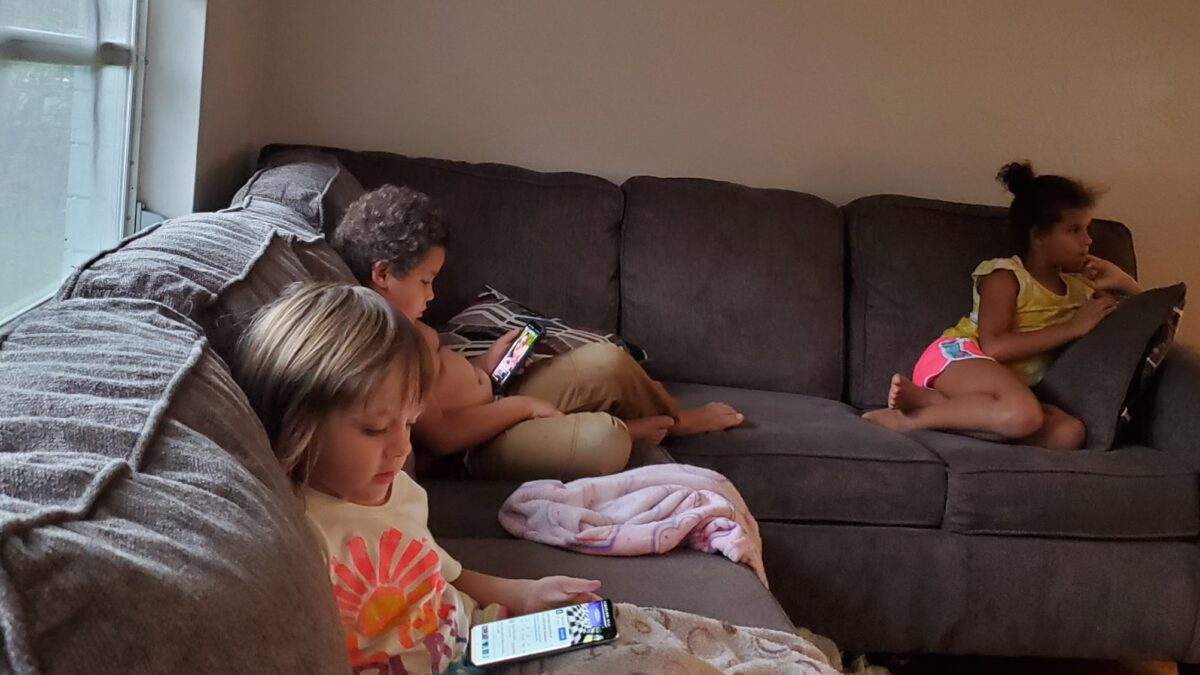
Being a parent is worrying. It’s all part of the job. You’re responsible for another life, so it’s natural. In fact, it’s something that parents have been doing for thousands of years – and probably longer.
But what are the top parental worries of 2022? What is keeping parents up at night more than anything else? Let’s take a look.
Social Media Overuse
Parents aren’t necessarily against social media use. In fact, many millennial parents were literally weaned on it and see it as an essential part of life. However, they still have concerns. Stories about the impact of social media on young people circulate regularly, including how it damages the mind and the impact that it has on social relationships.
Parents, therefore, are looking for solutions. Many are putting time limits on how long their children can spend on social media on their phones. Others are outright banning it, or trying to, to prevent it from damaging their children in the long-term.
Perhaps the biggest reason for concern, though, is how little power parents have over their children using it. Denying a child over the age of 12 access to a smart phone is nearly impossible. And even if you don’t get them one, they will likely have access to a computer terminal at school.
Screen Time

Coming in at a close second is screen time. Parents are concerned that children are spending too much time on their devices, and too little time in the real world.
Already, we’re seeing the effects of this in their biology. Children are weaker than they were a generation ago. They have less muscle tone and more fat on their bodies, indicative of the change in lifestyle. Kids aren’t outside playing games anymore. Instead, they are indoors, consuming content on their devices.
The long-term ramifications of this remain unknown. However, many experts suggest that it could actually be hampering development. Children aren’t gaining conventional life skills, putting them at a distinct disadvantage compared to previous generations.
Internet Safety
Coming in at number three on the list of parental concerns is internet safety which, you could argue, relates to worries number one and two. Parents want their kids to surf the net free from danger but, despite all the advances in technology, they’re still not convinced that’s possible. It’s only recently that major social networks have included tools so that people can protect themselves and their identity. But the technology is not airtight.
Depression
In the past, depression was not as prevalent as it is today, particularly among children. However, recently, there’s been a significant upsurge, and experts are still trying to figure out why.
The main reason appears to be information overload. Children no longer have a sense of wonder about the world. Instead, if they want to know the answer to a question, they just pick up their device and ask Google.
The other major driver appears to be the increased pressures society is placing on young people. Today, the emphasis is not on becoming a good person and supporting one’s family. Instead, it’s all about excellence, being the best person you can be, getting great grades and, eventually, earning a lot of money.
Of course, not everyone can strive for this high level of excellence. In any society, the vast majority of people will be distinctly average. Today’s youth are struggling to come to terms with that concept, believing that they have to be star performers in every aspect of their life.
Bad Eating Habits
Bad eating habits come in next on parents’ list of worries about their kids. Children simply aren’t eating the nutritious food that their parents would like them to eat. Many are refusing healthy foods outright.
The problem has to do with the industrial food system. Kids get hooked to highly processed foods from an early age, and then won’t accept anything else. Parents try to coax them to eat salads, beans or whole grains, but they outright refuse. Their taste buds simply can’t adapt to the radically different sensations produced by natural foods.
As such, parents often find themselves relenting to their children’s wishes. They simply can’t fight against processed foods chemically engineered to be as palatable as possible.
Is there anything that parents can do about this? Well, the trick is to eliminate the processed foods first. Introducing a fire break between processed food consumption and healthy eating is vital for tastebuds to be more accepting of fresh food.
The Roads
Many parents are worried about the roads and searching online for car seat installation tips to keep their kids safe. Each year, around 36,000 die on the roads, with hundreds of thousands more injured. Kids often bear the brunt of fatalities.
It’s not just children in passenger cars, either, that’s the problem. The main issue is kids as pedestrians. Due to their small size, many drivers never even see them, leading to fatal accidents. Over the years, parents have developed a range of strategies to keep their kids safe.
Keeping them on reins is one option. Another is to teach them how to cross the road safely – something that’s usually provided by schools, but not always.
Ultimately, it comes down to parent supervision and safety precautions. If you don’t take them, then you could be putting your child at risk.
COVID-19
Surprisingly, of all the worries that parents had about their children, COVID-19 was a long way down the list. Understanding that it is a disease of the elderly, most parents, brushed it aside as a significant concern.
Interestingly, the main safety concern didn’t seem to be about the disease itself. Instead, it was about the pandemic’s knock-on effects psychologically, in terms of their schooling, and how it might affect society in the future. Parents worried that the COVID-19 experience might irrevocably harm the society into which they were growing into.
Unequal Access To Healthcare
In most developed countries, access to healthcare is universal at the point of need. However, that’s not the case in the US.
For this reason, parents are worried. They fear what will happen to them financially if their children get sick, if they don’t have insurance that covers their bills.
Healthcare access inequality is a major source of stress. Even if they are otherwise healthy, children regularly require trips to the doctor’s office and appointments. It’s just a part of growing up. If parents can’t provide it, then that can be a real source of stress for them.
Societal Breakdown
Lastly, a growing number of parents are becoming concerned by what they see as societal breakdown. They witness the general tone of the culture and worry that it will continue to descend and degrade in the future, and their children will be helplessly caught up in it.
Differences In Parental Attitudes Towards Different Worries
Of course, not all parents are the same. Certain groups worried about things that didn’t really impact others.
For instance, some groups of parents are less comfortable about technology and worry how their children are using it. It’s not so much the devices themselves that are the problem, but what they might draw their kids into. For instance, children might take part in cyber bullying, or be victims of it. Families understand that technology is a double-edged sword. Sometimes kids can use it for good, but other times they use it for bad.
Parents from black backgrounds worried about racism more, with many putting it number one their list of concerns. For white parents, it did not make the top ten list.
Racism can have profound impacts on children’s wellbeing. Those targeted tend to experience higher rates of unwanted behavior, depression and anxiety.
Black families also worried about COVID-19 more, putting it at number two among their list of concerns. This might be a reflection of how the pandemic impacted parents in this community more than others. Death rates were higher in minority groups compared to majority groups.
Conclusion
Ultimately, many of these societal concerns are beyond the ability of the average parent to address. While it might be possible to deal with what goes into your child’s mouth in the short-term, you have no real control over healthcare policy, disease control, or violent crime. These are fundamental, systemic issues that can only be mitigated, not resolved.
Added to this, different categories of parents had different concerns. Black and hispanic parents, for instance, are worried about the impact of racism. However, whites aren’t so concerned – at least, not yet.
Interestingly, COVID-19 is no longer at the top of many parents’ minds. While it is still a concern, most now accept that the disease has limited impact on children and is far more dangerous when spreading among the adult population.
The good news is that parents can do things that reduce the risks that their children face. Little things, such as preparing them for the dangers out there is one good idea. Other tactics include avoiding spoiling them, and limiting their access to technology. Parent’s don’t have full control over their kids’ lives in 2022, but that was never the case.















